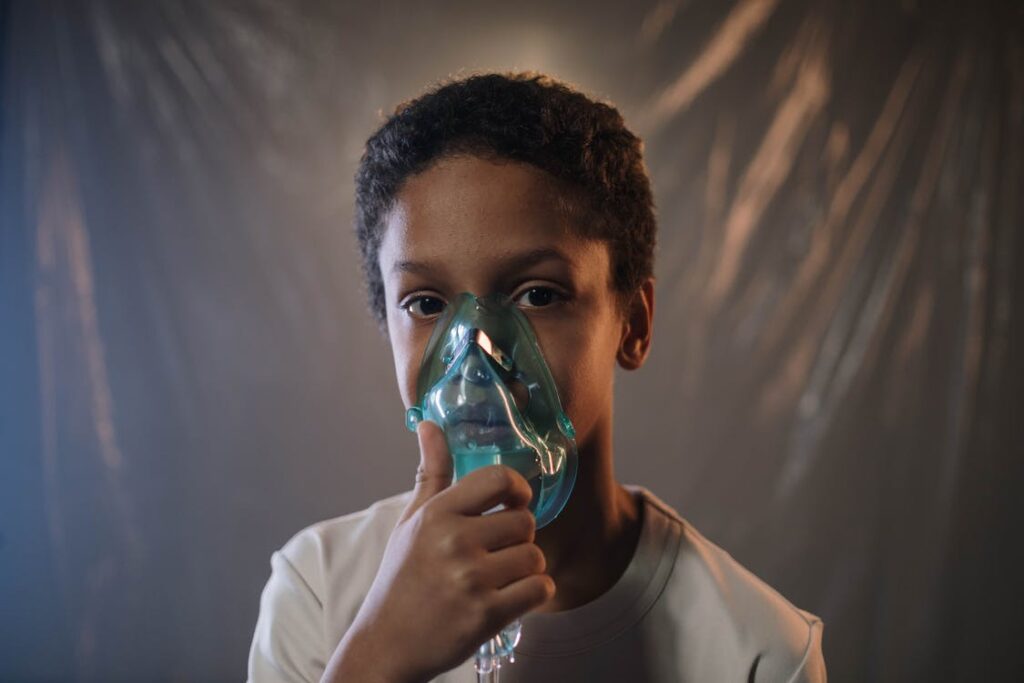Spring pollen season often brings an annual peak of discomfort for asthma and allergy sufferers, a group that includes approximately 65 million Americans and a disproportionate number of Black and Hispanic Americans, according to Asthma and Allergy Foundation of America (AAFA) statistics.
Asthma affects the lungs, and causes repeated episodes of wheezing, breathlessness, chest tightness, and nighttime or early morning coughing. In rare cases it can be fatal, according to the Centers for Disease Control and Prevention (CDC).
While no cure has been developed yet, biotechnology solutions offer treatments to control the ailment and alleviate suffering—and new ones are constantly being developed.
Black Americans are nearly 1.5 times more likely to have asthma, and three times more likely to die from this condition, according to the AAFA study, Asthma Disparities in America. Black females have the highest rates of death due to asthma. The figures show Hispanics, American Indians, and Alaska Natives also have higher rates of asthma and allergies.
“Research shows that asthma disparities are highly driven by socioenvironmental and economic factors, and that structural injustices over time have led to a situation of accumulated disadvantage for specific racial and ethnic subpopulations in the U.S.,” according to the report.
An effort to address the inequity
AAFA is seeking to address inequities in asthma and allergies with their new initiative, Health Equity Leadership and Advancement (HEAL). The HEAL Innovation program is an effort to support new approaches to battling inequity in asthma and allergies.
Amgen, a member of the Biotechnology Innovation Organization (BIO), is providing $1 million to support the first year of HEAL Innovation, which will involve pilot projects focused on adults and teens with asthma in Chicago, Detroit, Los Angeles, and St. Louis, according to AAFA.
“Amgen is deeply committed to addressing health disparities, so everyone—no matter their disease or where they live—can have access to healthcare resources. Asthma is an especially complex disease, and we know multidimensional disparities have created significant challenges in achieving equitable health outcomes,” said Ponda Motsepe-Ditshego, Vice President, Global Medical Therapeutic Area Head, General Medicine at Amgen. “This is why we’re supporting AAFA’s critical work with HEAL Innovation.”
The HEAL initiative was unveiled on May 3, World Asthma Day, part of National Asthma and Allergy Awareness Month, which takes place every May.
Biotech innovations to control asthma
Asthma cannot be cured, “but good management with inhaled medications can control the disease and enable people with asthma to enjoy a normal, active life,” according to the World Health Organization (WHO).
Biotech researchers are continuously developing improved solutions to ease asthma symptoms and control the condition. One of the most recent findings was announced in March by the Indiana University School of Medicine Department of Microbiology and Immunology, whose team is seeking a new way to treat seasonal or intermittent asthma. They developed models to more accurately define allergic memory and recall response in the lung.
“This study demonstrates targeting cytokine called IL-9 in the lungs during seasonal allergies could help with lung inflammation. By focusing on a population of memory cells that mediate the allergic recall responses of the lungs, we could develop new targets for treatments,” said Dr. Mark Kaplan, senior author of the study.
Just a few months earlier, in December 2021, Tezspire, the first and only biologic to consistently and significantly reduce exacerbations in a broad population of severe asthma patients was approved by the U.S. Food and Drug Administration (FDA).
The medicine, developed by Amgen and AstraZeneca, “helps stop the inflammation that causes asthma attacks at the source and has the potential to treat a broad population of people with severe asthma, including those who have historically lacked effective treatment options,” said David M. Reese, M.D., Executive Vice President of Research and Development at Amgen, in a press release. “Today’s approval by the FDA marks the first time patients and their physicians will have a biologic option for severe asthma without phenotypic limitations and irrespective of biomarker levels.”




